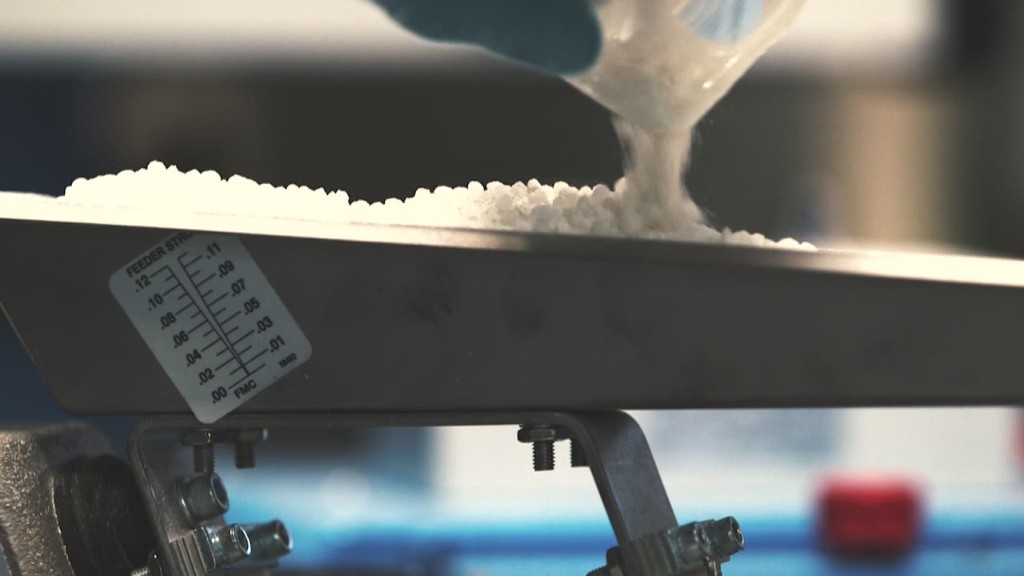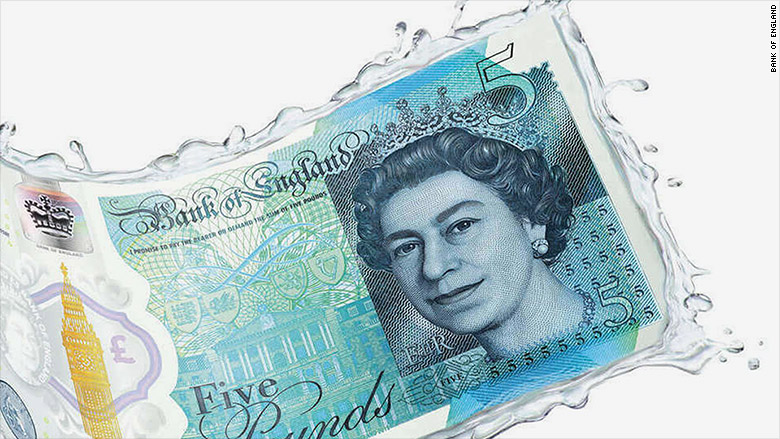
Surprise! There's a special ingredient in the new plastic cash being distributed across the U.K.: Animal fat.
The Bank of England admitted Monday that traces of tallow, derived from animal fat, can be found in the new British £5 notes that went into circulation in September.
The news prompted an immediate outcry from vegetarians and vegans, some of whom called on the central bank to stop using animal products in its currency.
"This is unacceptable to millions of vegans, vegetarians, Hindus, Sikhs, Jains and others in the U.K.," read the text of an online petition that quickly attracted more than 15,000 signatures.

A spokesperson for the Bank of England said it had only recently become aware of the issue, noting that the polymer used to make the cash is provided by a company called Innovia Films.
Patricia Potts, a spokeswoman at Innovia Films, confirmed that there are "minute" traces of tallow in the company's polymer. She said a supplier had used tallow to help make the material more "anti-static." She declined to name the supplier.
"They are looking to eliminate that, but obviously that will take time," Potts said. "It's a very difficult process."
Potts said that Innovia Films did not know until recently that animal fats were being used. She said the company has a policy to never "knowingly add any animal ingredients into our products."
Innovia Films supplies polymer to 23 other countries, including Australia, Canada, Mexico and New Zealand, for use in currency.
Potts wasn't able to say whether polymers used in the other countries also contain animal fats.
Central banks have been switching to polymer cash in recent years because the flexible material resists dirt and lasts longer than paper cash. It also has some robust security features that are only possible with plastic money.
